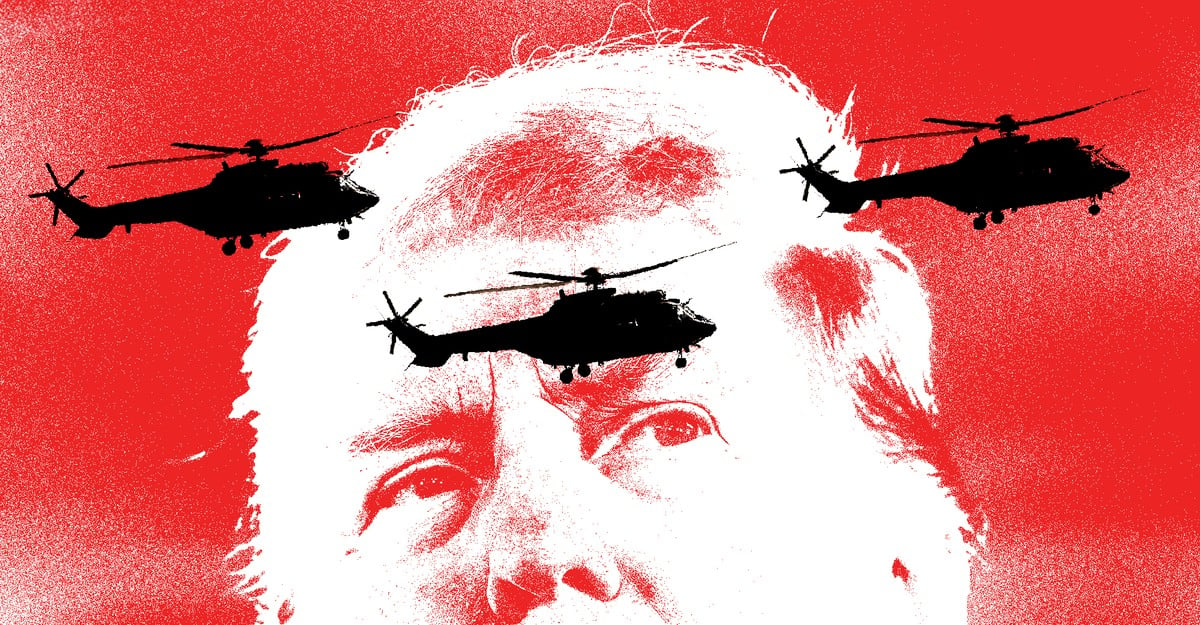Pressed in court, Trump’s lawyers made an argument that would destroy nearly all limitations on presidential power.
…
In a hearing before the D.C. Circuit Court, the former president’s lawyers argued that he should be immune from criminal prosecution for his role in the attempt to steal the 2020 presidential election. This argument has an obvious flaw: It implies that the president is above the law. Such a blunt rejection of the Constitution and the basic concept of American democracy is too much even for Trump to assert—publicly, at least—so his lawyers have proposed a theory. They say that he can’t be criminally prosecuted unless he is first impeached and convicted by Congress.
This argument is no less dangerous, as a hypothetical asked in court demonstrated in chilling terms. Judge Florence Pan asked Trump’s attorney, D. John Sauer, if “a president who ordered SEAL Team 6 to assassinate a political rival” could be criminally prosecuted. Sauer tried to hem and haw his way through an answer but ultimately stated that such a president couldn’t be prosecuted unless he was first impeached, convicted, and removed by Congress.
“But if he weren’t, there would be no criminal prosecution, no criminal liability for that?” Pan pressed. Sauer had no choice but to agree, because acknowledging any exceptions would have blown a hole in his argument.
…
What lawyers say in court is not the same as what politicians say or will do in office, but no normal politician would allow such an argument to be made on his behalf, especially while sitting in the courtroom. Trump did because his mentality is victory at all costs—winning the present legal case, but also anything else. Trump has already made clear that he wishes to punish his political opponents, and once he discovers the possibility of some power, he is seldom able to resist trying it. Today’s legal argument could very well be next year’s exercise of presidential power.



I don’t think the framers did. A few at least were leery of a transition of power happening at all. Some figured that a revolution would be necessary frequently. But some members of Congress and some prominent figures at the time were asking Washington to stay. I don’t know if anyone officially wanted him to stay until he died but they wanted longer. I assume they didn’t have much faith in democracy working well enough.